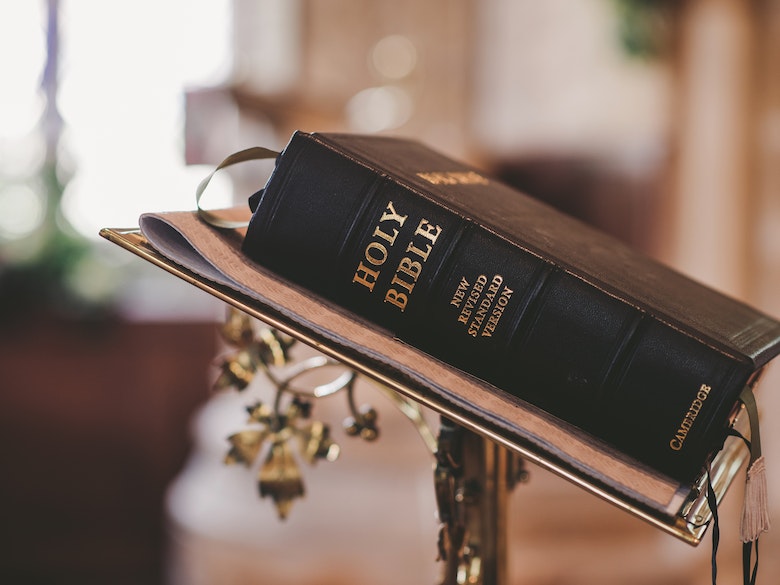When we think of the word “leader”, we easily think of a person who is bold, courageous, ready to act and has a plan. We think of the person who is at the helm of a great company, organization, or movement. When we think of the term leader, we easily think of people like Rev. Dr. Martin Luther King Jr who led the civil rights movement. We think of former First Lady Michelle Obama who advocated for the health and well-being of the nation’s children. Each of these persons appeared to be powerhouses, with their ability to inspire. We would never think of people like them experiencing fear.

Fear or anxiety does not appear to be synonymous when we hear the word leader. How could anyone have fear or anxiety and lead a company, ministry, or movement? Leaders need to be strong. Leaders know what they are doing. Leaders are the first ones ready to engage in the battle when trouble comes. Or is it because we see them from their particular position, from this mindset, we don’t consider the possibility that leaders may have fears and anxieties from which they lead from?
What is Leadership?
World renowned life and business strategist, Tony Robbins provides a clear set of definitions about what leadership is. Per Robbins, leadership is:
- The ability to inspire a team to achieve a certain goal.
- It is to influence, inspire and help others become their best selves, building their skills, and achieving goals along the way.
- It is empowering others to become effective leaders as well.
Per this definition, we can understand why we have the perspective of who a leader is and what they do. Leaders possess a type of superpower that attracts and inspires others. The energy and ability they possess, causes others to want to follow them. A leader is not about one’s title but more about who the person is and what a person does. This is why is it is hard to imagine that a good leader can experience times of fear or anxiety and be effective to lead people well. To understand how a leader can have fear or anxiety, it is helpful for us to get an understanding of what fear is.
What is Fear?
Fear is defined as “a primal emotion that involves a universal biochemical response and a high individual emotional response. Fear alerts us to the presence of danger or the threat of harm, whether that danger is physical or psychological”. A threat can be real or perceived yet cause fear.

Causes of Fear
Fear and anxiety can be birth from various places. It can come from or be the result of a past experience or trauma. It can also stem from the idea of:
- A future event
- An imagined event
- The unknown
Anxieties, such as the fear of failure, can turn into fears. Common phobias stem from social anxiety. Some common social phobias are:
- Fear of being judged
- Worrying you’ll embarrass yourself in front of people
- Anxiety about offending people
When we fear being humiliated or embarrassed in social settings, it may hinder our participation in activities such as:
- Public Speaking
- Meeting New People
- Speaking to Authority Figures

A Case of a Leader’s Fear
While we may think one cannot be called to lead or lead effectively, if they experience fear or anxieties, we only need to look to the Bible to see differently. In Exodus 3, we see the calling of Moses by God to lead the children of Israel out of Egypt. God sees the distress and hears the cries of the people. As a result, God has a plan to deliver the children of Israel out of Egypt. God has the perfectly imperfect person for the job – Moses.
Though God knew God had the right person selected, Moses saw things a little differently. In Exodus 3:11, it says “But Moses said to God, “Who am I that I should go to Pharaoh, and bring the Israelites out of Egypt?”” From Moses’ perspective, how could he possibly be the one whom God would choose and want to take on such a monumental task? How could he be the one to go before Pharaoh and demand the children of Israel be let go.
“But Moses said to God, “Who am I that I should go to Pharaoh, and bring the Israelites out of Egypt?” Exodus 3:11 NRSV
I can identify with Moses’ reluctance. I remember when I accepted the call to ministry, it was too big of an assignment for my mind to comprehend. Much like Moses, I began to wonder, who am I that God would think I was the right person to minister the word of God. Rather than see possibility, I was filled with every thought of why I was not the right person for the job. The same thoughts would revisit me, years later when God called me to pastor.

How Does Fear Show Up in Leading?
When a leader possesses fear and anxiety, it can manifest in how they lead their teams and organizations. If they are not aware of their fears and anxieties, it can damage their leadership. It can show up like:
- Fear of failure: a leader who fears failure results in fear-based tactics to try to ensure their team meets its goals.
- Insecurity: a leader insecure in their abilities, may use fear-based tactics to maintain their position and authority.
- “Flight Mode”: a leader who allows their fears to get the best of them may leave the role or organization, distance themselves from responsibilities rather than step up.
The result of a leader who fails to acknowledge or identify their fears and anxieties can be a detriment to the organization, their team, and the goal. It can lead to distrust, disloyalty, and lack of engagement with others. According to an article in TNLT, “Leadership requires us to command and transcend our personal fear in order to step up to the challenge of demonstrating stewardship and strength”.
“I learned that courage was not the absence of fear, but the triumph over it. The brave man is not he who does not feel afraid, but he who conquers that fear.” Nelson Mandela
What Can a Leader Do to Overcome or Cope with Fear and Anxiety?
Moses felt like he was not the one God could use because he was focused on his limitations rather than seeing the possibilities with God. As leaders, we must understand, it is not about our abilities as much as our availability to step up to the plate when called. We must trust if God gave us the assignment, we are equipped, in spite of our anxieties, to handle the assignment. First, we must trust God to lead us as we lead those whom we have been given charge over.
As leaders, it is important for us to have self-care routines or practices. Leading is not an easy task. There are going to be challenges and uncertainties. In order to cope with the pressures and our fears, we need to have outlets. We need to have a great support system around us to share our stresses, fears, and anxieties. We need to have hobbies we can turn to as a mental break to clear our minds.

We need to practice a healthy mindset and spiritual care. Rather than allow our thoughts and feelings to get the best of us, we can challenge our thinking with the word of God. Scriptures such as:
- 2 Timothy 1:7 “God has not given us a spirit of fear, but of power and of love and of a sound mind.”
- Philippians 4:13 “I can do all things through him who strengthens me.”
- 2 Corinthians 10:5 “We take every thought captive to obey Christ.”
- Psalm 118:6 “With the Lord on my side I do not fear.”
Lastly, if the fear, anxiety, or tension is becoming too great, we can seek help through a trained professional. We can work with someone to help us to identify the root causes of our fear and insecurity. This professional can also help us develop tools to address these issues and learn to lead from a healthier place.
Let’s talk about it:
- How has fear or anxiety impacted your leadership?
- Have you experienced a leader leading from a place of fear?
- How do you cope with your fears and insecurities as a leader?













